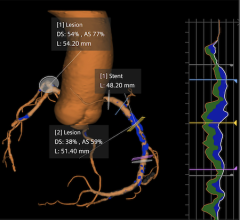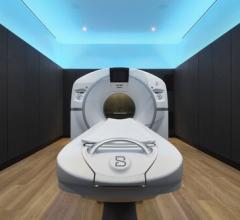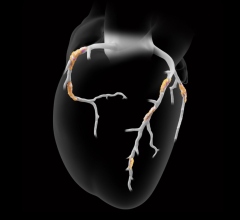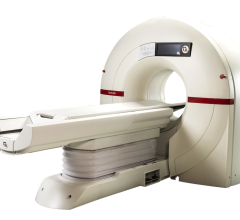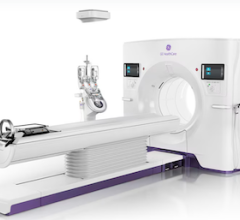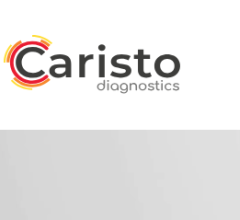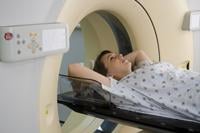
December 8, 2011 — A new survey released by the Siemens Radiation Reduction Alliance (SIERRA) reveals awareness and familiarity with medical imaging tests lead to clearer decisions for United States adults about their healthcare. The survey — released at RSNA 2011 — was conducted in response to increased scrutiny over medical imaging scans and the use of radiation.
SIERRA — an expert panel established to advance the cause of dose reduction in medical imaging — evaluated the decision-making process of participants in response to situations where a physician recommends a medical scan.
In the survey of more than 1,000 U.S. adults conducted by Braun Research Inc., several questions were asked regarding the use of medical imaging tests. These were followed by five real-life scenarios of varying severity where respondents were asked to decide whether to move forward with a specific medical imaging test for themselves or a loved one. The results show a direct correlation between familiarity with a test and the likelihood that consumers will move forward with it at the recommendation of a physician.
“We undertook this survey to address patient concerns that doctors deal with at the practice level every day when it comes to medical imaging,” said Marilyn Siegel, M.D., professor of radiology and pediatrics at Washington University School of Medicine, Mallinckrodt Institute of Radiology in St. Louis, and a SIERRA panel physician. “Patients are daunted by the choices they need to make for themselves or someone else, including whether the examination is needed, whether it is the best option, and what are the risks and advantages. It is no longer the physician who dictates care. Medicine now involves decision-making by both the patient and the doctor. This survey shows how patients think and make decisions regarding imaging.”
Correlation between knowledge of medical technology, acceptance of test
The technologies most familiar to consumers correspond to the percentage of consumers who would move forward with the test. Of the technologies highlighted, consumers were most aware of medical X-rays (96 percent) and would move forward with the physician’s recommendation for such in the survey scenario (88 percent). Consumers were least familiar with nuclear heart scan technology, with just over one-third (39 percent) having received or heard of the test; only 28 percent indicated they would follow a physician’s recommendation for a nuclear heart scan in that particular scenario:
|
Medical Imaging Test |
Consumer Test Awareness |
Would Move Forward with Test in Survey Scenarios |
|
Medical X-ray |
96% |
88% |
|
CT scan |
94% |
80% |
|
PET scan |
63% |
68% |
|
Cardiac cath |
61% |
60% |
|
Nuclear heart scan |
39% |
28% |
Consumers identify main use of imaging tests, but don’t know specific technologies
The survey found that 90 percent of U.S. adults could correctly identify, in response to an open-ended question, the primary use of medical imaging tests. They cited either use as a diagnostic tool to find out what’s wrong; to see internally what can’t be seen otherwise; or as a noninvasive procedure instead of exploratory surgery as the top reasons.
Further, roughly two in five respondents (41 percent) volunteered radiation exposure as a risk associated with medical imaging tests (also in response to an open-ended question). Yet U.S. adults are unsure which technologies use radiation to produce images and which do not, according to the survey. Twenty-three percent of respondents cited ultrasound technology and 60 percent cited MRI when asked “which of the following technologies use radiation to produce images?” although these imaging tools do not use ionizing radiation.
|
Medical Imaging Test |
Percentage of Consumers who Identified the Test as Using Radiation |
|
Medical X-ray |
89% |
|
Nuclear heart scan |
69% |
|
CT scan |
68% |
|
MRI |
60% |
|
PET scan |
58% |
|
Cardiac cath |
31% |
|
Ultrasound |
23% |
Despite the perceived risk of radiation exposure, respondents indicated nearly 80 percent of the time they would proceed with a test the physician recommended. These results suggest that many Americans recognize the benefits of medical imaging outweigh potential concerns about radiation.
“There is a big opportunity here to provide more education to our patients about the differences between various imaging tests,” said Cynthia McCollough, Ph.D., a medical physicist from Mayo Clinic in Rochester, Minn., and a SIERRA panel scientist. “While some tests are similar with regard to the information they provide, their cost and potential risks, there are many situations where one type of imaging exam is more accurate, faster, safer or less expensive. Knowing about these differences can help patients understand why their physician has recommended one test versus another.”
Information, options key when consumers decide whether to have an imaging test
While a majority of survey respondents would proceed with each of the five different types of medical imaging scans, some would not. The results illustrate that, in the latter cases, information and available options are the deciding factors when making an informed decision about their, or a loved one’s, care. The top reasons cited for not selecting a medical imaging test presented specifically in the survey scenarios include:
|
Medical Imaging Test |
Top/Number One Reason Cited for Not Selecting Test |
|
Medical X-ray |
It may not be necessary |
|
Cardiac cath |
I’d want to know other options |
|
CT scan |
It’s not critically necessary/there’s another option |
|
Nuclear heart scan |
I‘m not familiar/don’t know enough about it |
|
PET scan |
I would want to know other options available |
Further, for a majority of respondents (more than 80 percent), a physician or medical professional would be the source they would trust the most and seek advice from regarding a medical imaging test.
This survey was commissioned by Siemens Healthcare to provide information on consumer knowledge and understanding of medical imaging. Braun Research, Princeton, N.J., conducted the research on behalf of Siemens. Interviews were conducted via telephone during the period of Oct. 3–23, 2011, with 1,015 adults in a random sample of households (one interview per household), including 331 cell phone households. Results were weighted by demographic characteristics – age, sex, geographic region and race – to follow U.S. census data to ensure reliable and accurate representation of the total U.S. population 18 years of age or older.
This report is based on a weighted total sample of 1,015 respondents. The sampling error associated with this sample size is no more than plus/minus 3.1 percentage points at a 95 percent confidence level. Respondents answered questions based upon their current level of knowledge and understanding of medical imaging today. The survey is part of SIERRA’s campaign to evaluate the decision-making process of patients in response to situations where a physician recommends a medical imaging test.
For more information: www.siemens.com/healthcare

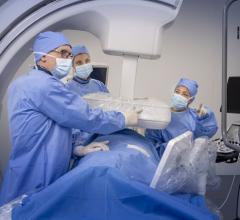
 February 02, 2026
February 02, 2026 

